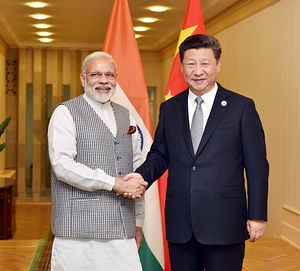It was widely anticipated. Yet when it came, it seemed like a shock. Dealing a major blow to Beijing’s insistence that it has special rights to South China Sea and in a victory for the Philippines, an international tribunal of judges decided last week that China’s claims to the critical waterway are without legal merit.
The ruling, handed down by a tribunal based at the Hague’s Permanent Court of Arbitration, came in response to complaints made by the Philippines after the seizure of Scarborough Shoal by China in 2012. It has now set the stage for more tension in one of the world’s foremost flash points. It will radically alter not only China’s relationships with its Asian neighbors, but with other major regional and global players such as the United States, Japan, Australia and India. China claims almost all of the South China Sea, but its claims are fiercely contested by the Philippines, Vietnam, Malaysia, Brunei and Taiwan.
China has long refused to recognize the tribunal and has repeatedly said that it will ignore the decision, which is binding and not subject to appeal. And Beijing reacted quickly to the tribunal’s decision with China’s defense ministry suggesting that its troops would “unswervingly safeguard state sovereignty, security, maritime rights and interests.” Defying the tribunal’s ruling, Beijing insisted that it had sovereignty over the South China Sea.
China was “the first to have discovered, named, and explored and exploited” the islands of the South China Sea islands and their waters, and had “continuously, peacefully and effectively exercised sovereignty and jurisdiction over them,” Beijing said in a white paper on settling disputes with the Philippines. And now Beijing has decided to close off a part of the South China Sea for military exercises this week and its officials are warning freedom of navigation patrols carried out by foreign navies in the South China Sea could end “in disaster.”
Within hours of the tribunal’s ruling, India’s external affairs ministry issued a statement that, without naming China, called on all stakeholders to resolve disputes peacefully and to show respect for the UNCLOS. This was a position on principles not on China or Philippines and important for India, which is looking for a role a regional security provider.
For many in India, this moment presents an important opportunity to underscore the country’s credentials as a responsible global power. China, which was talking about global norms to block India’s bid at the Nuclear Supplier’s Group (NSG) last month, now seems prepared to flout international law with impunity. But India managed to resolve its maritime dispute with Bangladesh using the arbitration route.
U.S. Assistant Secretary of Defense for East Asia Abraham Denmark alluded to this when he suggested that China should follow India’s example of resolving its maritime boundary dispute with Bangladesh by implementing the award of a similar tribunal at the PCA. The PCA tribunal awarded Bangladesh 19,467 square kilometers of the 25,602 square kilometers of sea area in the Bay of Bengal in the dispute regarding the delimitation of the maritime boundary between the two countries in 2014, which the two sides have since implemented.
New Delhi would like to use this strategic opportunity to shore up its profile in the larger Indo-Pacific as the region comes to terms with China’s assertiveness. With burgeoning strategic ties with Japan, Australia, Vietnam, Philippines, and Indonesia, the stage is set for a more robust Indian presence in the region.
There has always been a demand for a greater Indian role in the region. After China’s reaction to the tribunal’s ruling, this is only likely to increase.

































